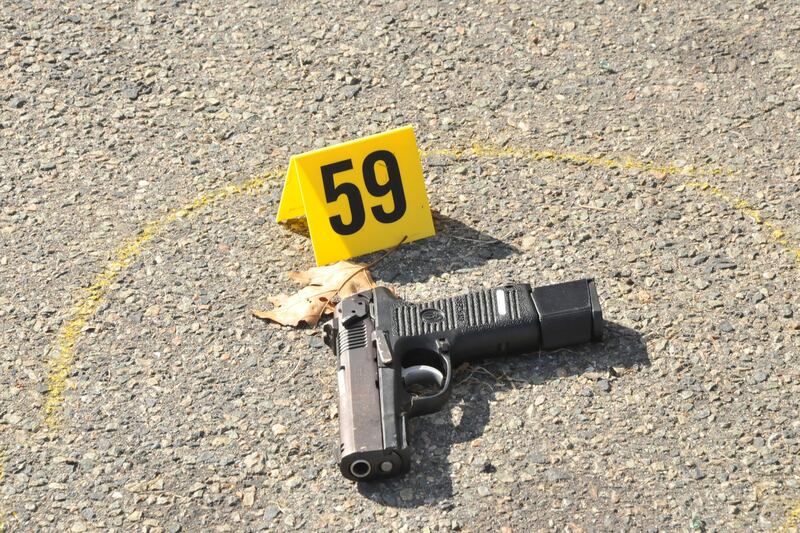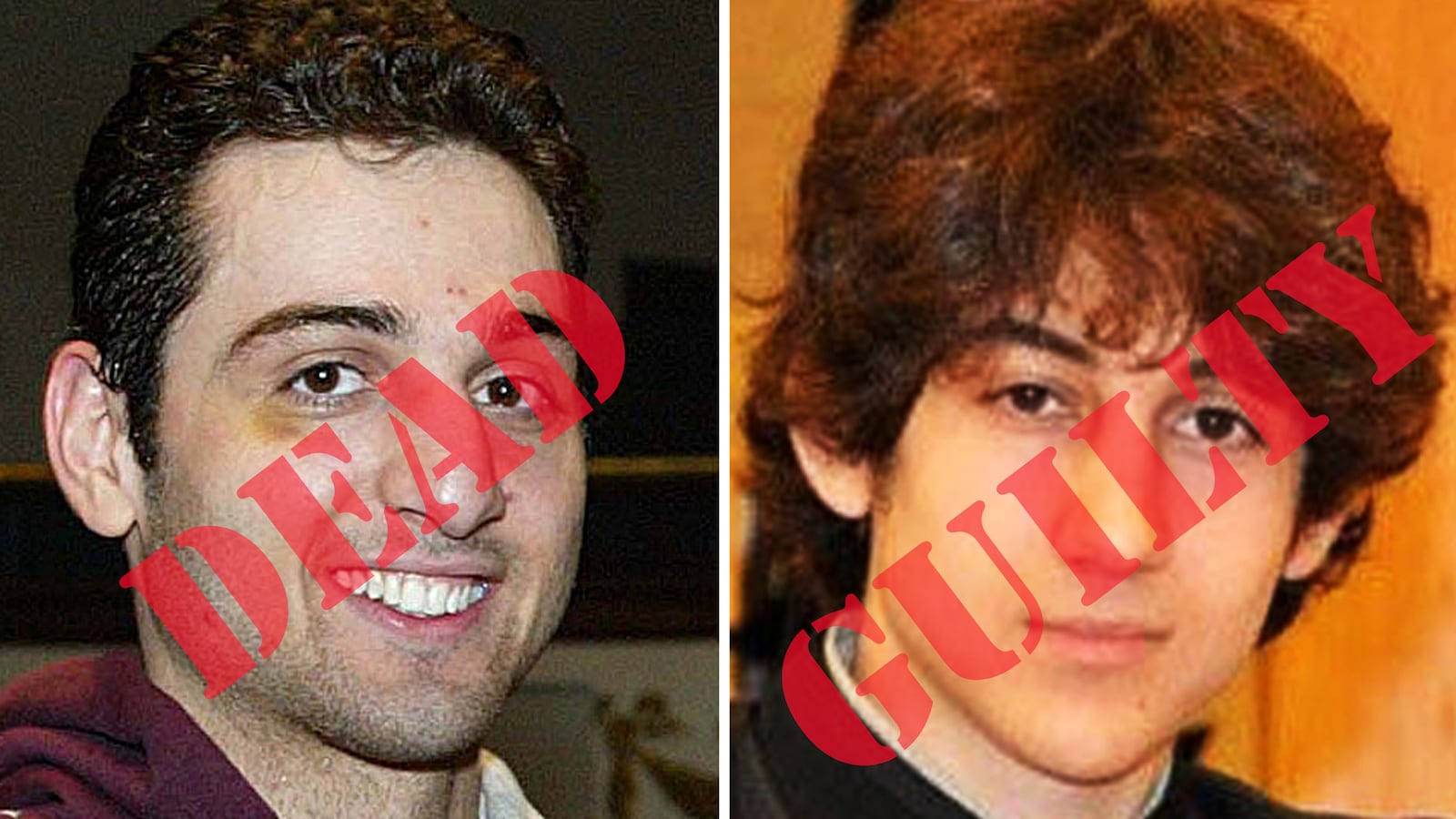When Dzhokhar Tsarnaev entered the courtroom this morning he was jovial, smiling as he whispered something to his attorney Judy Clarke.
Clarke smiled back, but her all-black attire may indicate she was prepared for what was to come.

Tsarnaev was found guilty on all 30 charges, 17 of which carry the death penalty.
Tsarnaev and his three attorneys stood in somber silence, synchronized, each grasping one hand over the other, as the jury delivered a hail of guilty verdicts.
Not only did the jury find him guilty of setting off a pressure cooker bomb at the marathon finish line, they convicted him of conspiracy charges, kidnapping and hijacking, and all charges related to the murder of MIT Officer Sean Collier, and the serious bodily injury of Officer Richard Donahue.
Tsarnaev will soon be tried for his life.
Though Tsarnaev has revealed little of his emotions throughout the month-long proceedings, by count seven it was clear: The defendant had stopped smiling.
After about 25 minutes, when the clerk had finally finished reading out all the charges and subsequent guilty verdicts, Tsarnaev sat slouched in his chair and pressed his fingers against his temple.
The jury took a day and a half to reach this decision.
The guilt phase has taken more than a month of the trial—92 witnesses for the prosecution, three for the defense, and a whole lot of horrific footage and detailed accounts from people at the scene of two bombings that left three innocent people dead and 264 more injured near the finish line of the Boston Marathon.
The defense was prepared for the jury to come back with mostly guilty verdicts. In her opening, Clarke had already admitted that “it was him.”
Pleading not guilty was a legal strategy—a way to prepare for the sentencing phase of the trial, which was, in this case, inevitable.
Still, the defense had a chance to win on at least a few counts. They were trying to beat some of the conspiracy charges in an effort to argue that Tamerlan Tsarnaev, the defendant’s older brother, was the ringleader of the attack.
It’s an argument the prosecution have to hammer home to the jury in the sentencing phase of the trial.
The Collier murder charges and Donahue injury charges are perhaps the biggest blow to the defense. The government admitted they were not certain if it was Dzhokhar or his brother Tamerlan who pulled the trigger and killed Collier, an MIT police officer. Today, Dzhokhar was found guilty for his murder.
According to reports, Donahue was most likely injured by fellow officers trying to detain Tsarnaev and his brother in Watertown. The jury found that carjacking Dun Meng was part of a conspiracy that led to Donahue’s near death, even if he didn’t pull the trigger.
In her closing statement, Judy Clarke implored the jury to hear out the government’s side in sentencing. “In the next part of the phase you’ll hear a lot more. We ask you to hold your minds open,” she said.
Clarke will have to hope that the jury is, in fact, more open minded when jurors make their next decision—whether or not to spare the 21-year-old convicted terrorist’s life.
Or at least one of them is. If even a single juror decides against the death penalty, Tsarnaev’s life will be spared.
The government will need to convince all 12 jury members to sentence Tsarnaev to death. Today’s verdict shows that the prosecution is well on its way to its ultimate goal: Tsarnaev’s death.





